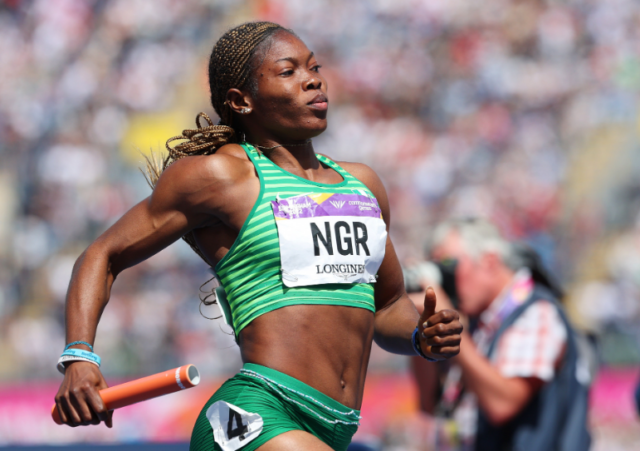The Athletics Integrity Unit (AIU) has imposed a three-year ban on Nigerian sprinter Grace Nwokocha for her involvement in anti-doping violations. The sanction was confirmed in an official statement released by the AIU.
Read Also: Ekiti United FC Establishes Strong Ties With SWAN, Ensures Enhanced Collaboration
Nwokocha, who admitted to violating World Athletics (WA) anti-doping rules, has accepted the penalty for her breach. The AIU and the athlete reached a Case Resolution Agreement, acknowledging the violations under Rule 2.1 and Rule 2.2 of the Commonwealth Games Federation Anti-Doping Rules (CGF ADR).
The AIU decision is considered final and binding, and Nwokocha has agreed to a three-year period of ineligibility.
Grace Nwokocha was provisionally suspended in September 2022 after failing a doping test conducted during the 2022 Commonwealth Games in Birmingham. The substances Ostarine and Lingadrol were detected in her sample A urine, which was collected on August 3, 2022.
How You Can Get a Chance To Become a Millionaire
She was part of the Nigerian quartet that clinched the gold medal in the 4×100 meters relay at the 2022 Commonwealth Games. However, following her doping case, the Commonwealth Games Federation (CGF) stripped Nigeria of the gold medal, invalidating all of Nwokocha’s results from the competition.
The ban is retroactive and takes effect from August 3, 2022, lasting until August 2, 2025. Nwokocha now joins the list of Nigerian sprinters facing suspensions for anti-doping violations. In 2022, Blessing Okagbare received an 11-year ban following an investigation by the AIU after failing an out-of-competition doping test.
More recently, Divine Oduduru was handed a six-year ban for his involvement in Okagbare’s case.
Nwokocha’s ban serves as another reminder of the importance of maintaining clean and fair competition in the world of athletics.
Anti-doping measures continue to be enforced to preserve the integrity of the sport and protect the rights of athletes.









